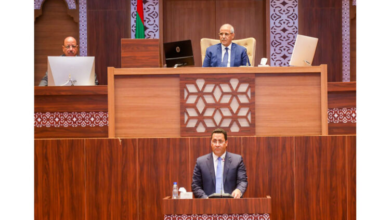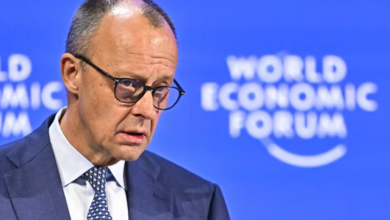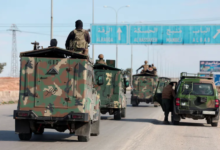India and Pakistan Reach Immediate Ceasefire Agreement Amid Escalating Tensions

India and Pakistan confirmed today, Saturday, that they have reached an agreement to implement a ceasefire, following nearly 12 hours of intense military operations by Pakistan under a campaign dubbed “Al-Bunyan Al-Marsous” (“The Reinforced Structure”), and four consecutive days of deadly clashes that brought the two nuclear-armed neighbors to the brink of full-scale war.
The first announcement came from U.S. President Donald Trump, who declared that both countries had agreed to an immediate cessation of hostilities.
“Following U.S.-brokered talks, I am pleased to announce that India and Pakistan have agreed to a comprehensive and immediate ceasefire,” Trump stated.
New Delhi and Islamabad Confirm Agreement
Shortly after the U.S. announcement, the Indian Ministries of Foreign Affairs and Defense confirmed that an understanding had been reached with Pakistan to halt all military operations—land, air, and sea—starting at 5:00 PM local time today.
India’s foreign ministry also revealed that senior military commanders from both sides are scheduled to hold follow-up talks on May 12.
The ministry reaffirmed New Delhi’s unwavering stance against terrorism “in all its forms and manifestations.”
Pakistan Declares Immediate Implementation
Pakistani Deputy Prime Minister and Foreign Minister Ishaq Dar also announced that an agreement with India had been reached and would take immediate effect. He noted the reactivation of military communication channels and hotlines between Islamabad and New Delhi.
Dar emphasized that this was not a partial agreement but a comprehensive ceasefire, adding that around 30 countries had actively contributed to diplomatic efforts. In an interview with Geo News, he confirmed the involvement of the foreign ministers of the U.S., Saudi Arabia, and Turkey in the negotiations.
He stated that Pakistan remains committed to peace and regional stability but would not compromise on its sovereignty or territorial integrity.
Earlier today, Pakistan launched retaliatory strikes after three of its air bases were hit overnight. These developments sparked widespread fears that the confrontation between the two nuclear powers could escalate into full-blown war.
Following the ceasefire declaration, Pakistan’s Civil Aviation Authority announced the reopening of its airspace to all flights.
Recent Escalation
The ceasefire announcement follows a sharp spike in military tensions between the two countries. The Indian Ministry of Defense had reported a significant Pakistani military buildup along the border and accused Pakistani forces of attempting aerial incursions into 26 Indian positions.
India’s air force claimed that Pakistani forces targeted a base in Punjab and struck civilian infrastructure, including hospitals and schools, in the Indian-administered part of Kashmir.
Meanwhile, Indian Foreign Ministry spokesperson Vikram Misri accused Pakistan of waging a disinformation campaign and rejected Islamabad’s claims of destroying Indian military and energy infrastructure.
For its part, the Pakistani military—through spokesperson Ahmad Sharif—confirmed the launch of a major counteroffensive named “Al-Bunyan Al-Marsous,” in response to what it described as four days of continuous Indian aggression.
A military source reported that Pakistan launched several surface-to-surface missiles targeting four Indian military sites. Additionally, Pakistani forces claimed their drones had penetrated Indian airspace near the capital.
Pakistan’s National Disaster Management Authority reported that 13 civilians had been killed and over 50 injured in the Pakistani-administered part of Kashmir over the past 12 hours.
In southern Pakistan, a local official stated that an airport in Rahim Yar Khan District was attacked by three Indian “suicide drones.”








